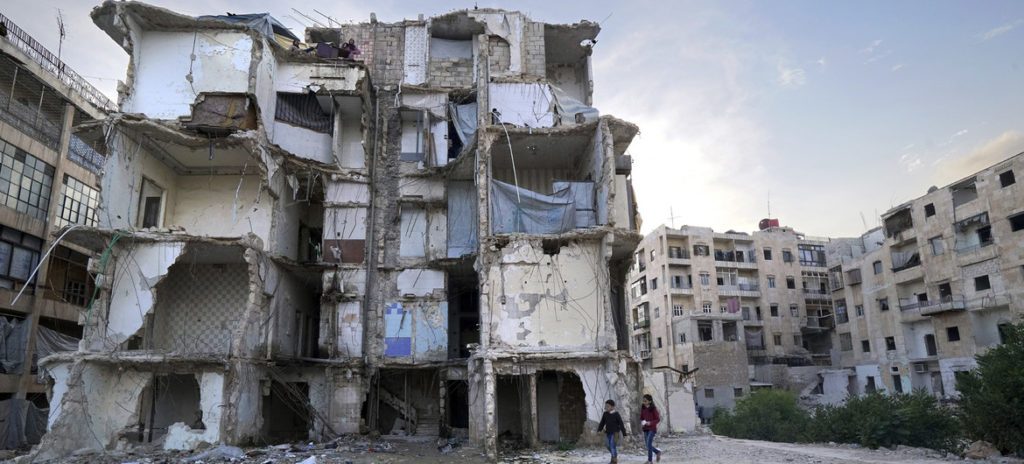GCPEA News
Seven years of war in Syria has left ‘colossal human tragedy’ in its wake – UN refugee chief
UN News, March 9, 2018
After seven years of brutal conflict in Syria, there are no clear winners, “but the losers are plain to see,” the United Nations refugee agency chief said Friday, describing the “colossal human tragedy” that has cost hundreds of thousands of lives, driven 6.1 million people from their homes and forced 5.6 million others to seek safety in neighbouring countries.
“This seven-year war has left a colossal human tragedy in its wake. For the sake of the living, it is high time to end this devastating conflict,” the UN High Commissioner for Refugees, Filippo Grandi underscored.
The conflict – which broke in the wake of massive anti- and pro-Government street protests across the country in 2011 – reaches “a depressing anniversary” this month.
The High Commissioner painted a grim picture of the relentless suffering of Syrian civilians and denounced the ongoing brutality as a shameful failure of political will and a new low in Syria’s long-running conflict.
“There are no clear winners in this senseless pursuit of a military solution. But the losers are plain to see – they are the people of Syria,” he added.
With 69 per cent of civilians inside the country languishing in extreme poverty, conditions are worse than ever. Ninety per cent of families now spend more than half their annual income on food as prices are, on average, eight times higher than pre-crisis levels.
Moreover, some 5.6 million people lack security or basic rights and require humanitarian assistance.
While UNHCR and other humanitarian actors are making every effort to bring relief to hundreds of thousands of people in dire need inside Eastern Ghouta and other besieged parts of the country, access to these populations remains woefully inadequate.
On 5 March, a humanitarian convoy delivering aid to besieged Eastern Ghouta was cut short amidst ongoing shelling and subsequent attempts have been thwarted.
“Humanitarian access to those in need must be guaranteed. People must be allowed to leave to seek refuge and civilians and civilian infrastructure including hospitals and schools must be protected at all costs,” Mr. Grandi maintained.
Meanwhile, the hopes of millions of Syrian refugees living in Turkey, Lebanon, Jordan, Egypt and Iraq who dream of returning home when conditions are safe are being dashed.
“With fighting in parts of Syria as fierce as at any point during the conflict, refugees are understandably still too frightened to return,” Mr. Grandi continued, noting that UNHCR is preparing to assist in returns for when the security situation improves.
As conditions for millions of Syrians in exile grow more desperate, the vast majority live below the poverty line and more than three-quarters sheltering in Jordan and Lebanon are unable to meet their basic food, shelter, health or education needs.
Although host countries lay on second shifts to accommodate the refugees, 43 per cent of 1.7 million school-aged Syrians are out of school.
“While the focus is on the devastation inside Syria, we should not forget the impact on the host communities in the neighbouring countries and the effect that so many years of exile has had on refugees,” Mr. Grandi reminded.
Turning to an upcoming international conference in Brussels on supporting the future of Syria and the region, he asserted that it must result in a boost of financial and development assistance.
“As long as there is no political solution to the conflict, the international community must step up its investment in the host countries,” the High Commissioner concluded.





